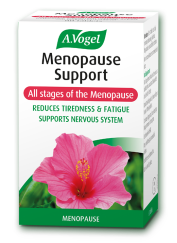Eileen talks about: Itchy skin
An introduction to itchy skin and menopause
An itch occurs when your skin is irritated. This can be triggered by a number of causes – from insects landing on you to allergies and skin disorders. The skin irritant triggers a nerve reflex and the urge to scratch - this is designed to protect your skin by getting rid of the cause as quickly as possible.
When the itch becomes constant, it can lead to an irresistible urge to scratch a specific area on your skin even when there is no obvious cause. Excessive itching can lead to dry or flaky skin or even bleeding.
Itchy skin can be caused by the menopause, sometimes affecting large areas of the body.
Why is the menopause giving me itchy skin?
As you go through the menopause, levels of the hormone oestrogen begin to drop.
Oestrogen has a number of functions, including regulating the moisture levels of your tissues and stimulating the production of collagen. Collagen is a fibre that improves the strength and elasticity of skin – low levels of collagen can lead to the formation of wrinkles.
As the level of oestrogen in your body falls, so does the amount of collagen and skin-moistening oils produced. This causes your skin to become dry and irritated. You may first notice this around the T-zone of your face although it can spread over your whole body.
Raised stress levels can exacerbate itching as stress triggers the release of histamine, which can cause flushing, itching and sometimes skin rashes. As many mid-life women are dealing with stressful circumstances, working to support and calm the nervous system is important.
If levels of uric acid rise, due to dehydration and/or excess intake of caffeinated drinks, discomfort and itching can worsen. This factor may also contribute to soreness in the joints, another one of the common menopause symptoms.
Diet, lifestyle and home remedies for itchy skin
Keeping your skin moisturised is one of the most effective means of relieving itchy skin. When you take a bath or shower, do not use steaming hot water, as this will strip your skin of essential oils. Warm water is the gentlest. Only use mild unscented soap as perfumes can aggravate your skin. Exfoliate and moisturise your skin as soon as you are out of the shower or bath and dried off.
Drinking plenty of water will keep your skin hydrated. It is also worth remembering that alcohol and nicotine prematurely age your skin and dry it out. This will increase the chances of it becoming itchy, so cutting down on smoking and drinking would be sensible.
What you wear can affect how severe your itchiness can become. Wool and some synthetic fibres can irritate even the hardiest of skins, so wear cotton and loose fitting clothes. As with soap, avoid any perfumed washing detergents or softeners.
What herbal remedies could help me?
A good remedy to start with is the extract of soy. This supplement may be used before, during and after the menopause and can help with a wide variety of mild complaints experienced during this time of life.
![]() "Menopause support tablets have eased my problems. I would recommend them to any one suffering the effects of the menopause."
"Menopause support tablets have eased my problems. I would recommend them to any one suffering the effects of the menopause."![]()
Although itchy skin during the menopause is best treated 'from the inside' some woman find that Neem can be useful to soothe the skin whilst other steps taken work their way through the body.
Conventional medicines for itchy skin
There are some conventional medicines which can help relieve your itchy skin, including:
- Mild steroid creams - these can be bought over-the-counter or on prescription from your doctor. They are for short term use (no longer than a week) and for localised areas of itchy skin
- Anti-histamines – these are allergy treatments, although some women find them helpful for itchy skin caused by the menopause. They are available in many forms including tablets and creams
- Benzocaine – this is an example of a local anaesthetic which is available as a cream and can be applied directly to the skin.
If your itching is caused by or worsened by another condition such as eczema or psoriasis then treating this condition will bring the most effective relief. If you are worried about your itchy skin then it is advisable to go to your doctor.








